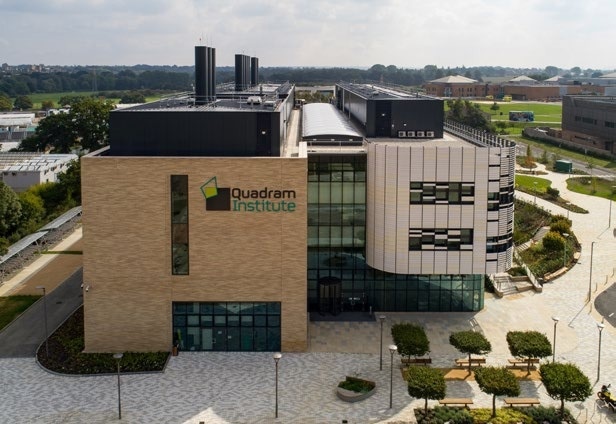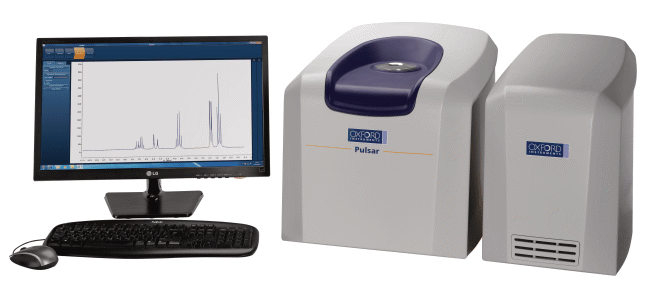One of the most widely traded commodities in the world today is coffee. However, there is the risk of adulteration of high-quality Arabica roast coffee with less expensive coffee types, such as robusta. As a result, coffee manufacturers and buyers alike need a fast, accurate, and cost-effective way to ensure every batch’s authenticity.
We are now able to offer an NMR-based authentication service to the sector for the very first time.
Elizabeth Saggers, Operations Director, QIB Extra
Introducing Benchtop NMR
A leading provider of strategic and applied research services is QIB Extra Ltd, which also provides this type of coffee analysis to companies in sectors such as food, diet, and health. What’s more, with the arrival of benchtop Nuclear Magnetic Resonance (NMR) analysis, there has been a revolutionary transformation in how QIB Extra approaches this task.
Historically, NMR was far too expensive for this type of routine analysis. However, the creation of Oxford Instrument’s Pulsar solution has changed the landscape.
Elizabeth Saggers explains further, “We have a long history of using high-field NMR spectroscopy for analytical purposes, including developing methods for authenticating the composition of foods. However, translating these into commercial settings has always been a challenge. The Full Economic Cost of services based upon research-grade high-field instruments is prohibitive – a specialist technician is required to maintain the machine; the capital and depreciation costs are high, likewise annual maintenance including cryogens.”
Moreover, the game-changing capabilities of benchtop NMR are manifold. “The arrival of benchtop NMR for analytical screening has therefore been a game changer. Once we had established a method using the low-field approach, we were able to offer it as a service to clients at a competitive rate, as the upkeep of the low-field instrument is so cost effective.”
Low Cost, High Speed
For the purpose of authenticating coffee using Pulsar, 10g of ground roast coffee are stirred with 30 ml chloroform for 5 minutes. This mix is then filtered and dried in a vortex evaporator for 30 minutes. The next step involves re-dissolving the dried extract in 800 µl of deuterated chloroform, which is then filtered directly into standard 5 mm NMR tubes.
Pulsar’s measurement time is approximately 40 minutes, which makes the total preparation and measurement time per sample approximately 90 minutes. As compared to alternative chromatographic methods for coffee authentication, which invariably have much lengthier preparation steps, this works extremely well.
Saggers adds, “We have streamlined the sample preparation method with a well-researched standard operating protocol, and the subsequent spectral analysis is carried out using a bespoke app developed in-house at QIB (now also sold in collaboration with Oxford Instruments). This provides a one-click procedure for returning the outcome for each sample in a straightforward interface.” Saggers continued, “We are now able to offer an NMR- based authentication service to the sector for the very first time, at a price commensurate with large-scale, regular screening. We believe this to be a worldwide first.”
What’s more, Oxford Instruments’ Pulsar is not limited to coffee analysis alone. Pulsar can also be used in the determination of the composition of fatty acids and detect edible oil adulteration. As such, it is a simple, speedy, accurate and cost-effective method of carrying out a wide range of food- related analysis.



Oxford Instruments’ Pulsar
Pulsar is a high resolution, 60MHz benchtop NMR spectrometer, with the ability to provide high quality 1-D and 2-D NMR spectra of 1H, 19F, 13C and other nuclei. Owing to its use of a permanent magnet, it requires neither liquid helium nor liquid nitrogen. What’s more, the advanced, automatic shimming produces a highly homogeneous magnetic field, which implies that Pulsar is suitable for use in almost any industrial or academic chemistry laboratory, for teaching, for organic synthesis analysis, or for materials identification.
For a number of analyses, liquid samples can be run neat; while solid samples can be dissolved in deuterated or non-deuterated solvents. Finally, the intuitive software takes the user step-by-step and seamlessly through the measurement process, with data being processed by the industry- renowned Mnova software.

This information has been sourced, reviewed and adapted from materials provided by Oxford Instruments Magnetic Resonance.
For more information on this source, please visit Oxford Instruments Magnetic Resonance.